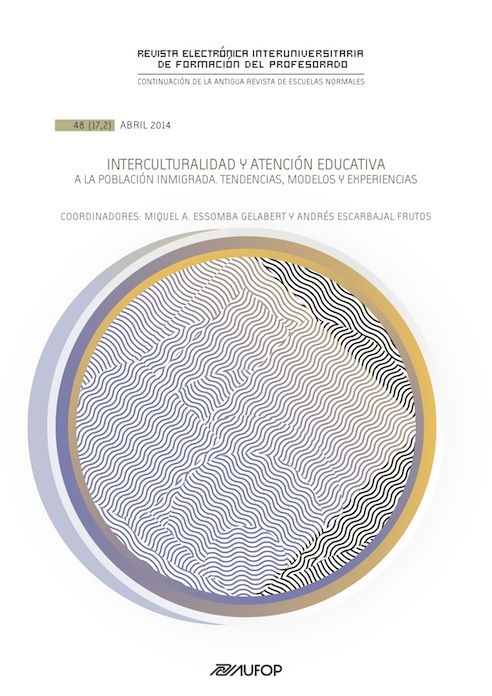Teaching training in intercultural education in Latin America. The Chilean case.
Supporting Agencies
- Agradecimientos
- Agradecemos al Fondo Nacional de Desarrollo Científico y Tecnológico FONDECYT N° 1140490. Centro de Investigación en Educación en Contexto Indígena e Intercultural (CIECII)
Abstract
This article aims to analyze the intercultural education and teaching formation in Latin America, specially in Chile. The study of this subject is an analysis of the Team of Senior Researchers of the Research Center in Indigenous and Intercultural Context (CIECII)– “Centro de Investigación en Educación en Contexto Indígena e Intercultural” – part of the Millennium Scientific Initiative (ICM in Spanish) program by the Universidad Católica de Temuco. We uphold the view that interculturality in Latin America had its origin in the dynamic and complex relationships among the different indigenous communities and in the subsequent sociocultural transformations that resulted from the processes of conquest, colonization and constitution of the nation-states. In this context, bilingual intercultural education has been historically aimed at indigenous people, while formal schooling has been conceived mainly as a strategic tool of the nation-states to continue the dominance processes inherited from the colonial time (coloniality), specially in the school institutions. Thus, thinking about interculturality in a critical manner means to conceive it as an ethical, political and epistemological project to be. A project that would transform the foundations that underpin the asymmetries and inequities in our society and that are replicated through formal schooling. We can conclude that, for teaching training, interculturality should seek to build a dialogue among subjects belonging to different societies and cultures in order to counteract the single-lined monoculturalism, to overcome the colonial characteristics of the educational actions, based on teaching practices based on critical awareness, as well as to combat racism and discrimination.
Downloads
-
Abstract4756
-
PDF (Español (España))2541
Los artículos que se publican en esta revista están sujetos a los siguientes términos:
1. El Departamento de Métodos de Investigación y Diagnóstico en Educación de la Universidad de Murcia (España), junto con el Servicio de Publicaciones de la Universitdad de Murcia (Editum) son los editores de la revista REIFOP y conserva los derechos patrimoniales (copyright) de los artículos publicados, permitiendo la reutilización de las mismos bajo la licencia de uso indicada en el punto 2.
2. Las obras se publican en la edición electrónica de la revista bajo una licencia Creative Commons Reconocimiento-NoComercial-SinObraDerivada 3.0 España (texto legal). Se pueden copiar, usar, difundir, transmitir y exponer públicamente, siempre que: i) se cite la autoría y la fuente original de su publicación (revista, editores y URL de la obra); ii) no se usen para fines comerciales; iii) se mencione la existencia y especificaciones de esta licencia de uso.
3. Condiciones de auto-archivo. Se permite y se anima a los autores a difundir electrónicamente las versiones pre-print (versión antes de ser evaluada) y/o post-print (versión evaluada y aceptada para su publicación) de sus obras antes de su publicación, ya que favorece su circulación y difusión más temprana y con ello un posible aumento en su citación y alcance entre la comunidad académica. Color RoMEO: verde.















